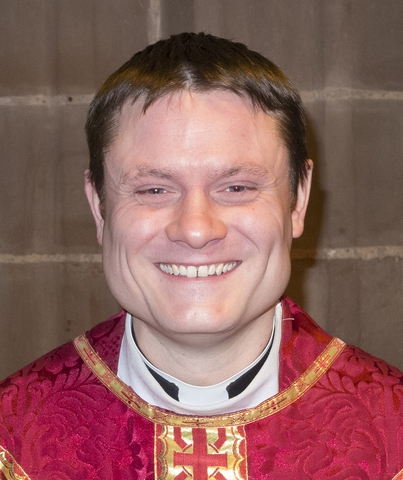
August news from the clergy
12 Aug 2020 • From the Clergy
| ‘Wars always put a brake on progress.’ More than twenty years later, I can still recall the ‘question’ for my A’ level history coursework. As an enthusiastic seventeen-year-old, I set to work tearing apart the question as one was meant to do, arguing about the definition of progress and how war could accelerate certain types of progress. Faced with that question today, I am not sure how I would respond. |
In the ensuing years, I have read thousands of books. I have stood in silence in places where some of the most terrible events in human history have happened, from the gas chambers of Auschwitz, to the killing fields of Cambodia, to the memorials of Nagasaki and to the twisted wreckage of Ground Zero in New York. Here, I have confronted the ugliness of the idolatry of what is termed progress, the creation of ever more sophisticated means of mass slaughter and the prioritising of profit over humanity. From an ethical perspective, I think I might now argue that war does indeed always put a brake on progress (whatever that is), because it necessarily introduces a rupture into human relations where evil and hatred flourish. Look at photos of the wreckage of Warsaw or Berlin 1945 and it is hard indeed to discern anything positive about what has happened.
With the detached perspective of a historian, it is far easier to look at the positives which resulted from a war, even if we must always accept that a terrible cost was exacted along the way. World War II, for example, caused the world to change for the better in many ways, something we can see with the distance of time. That was not evident in 1945. Amidst the relief and rejoicing that fighting was over, people had to confront a devastated world. Beyond the initial euphoria, the future was daunting and uncertain. The positive consequences we might identify now were not apparent then, in a world which had been on the brink of destruction. After an event of great magnitude, it takes many years to come to terms with it and even begin to be able to analyse its effects and significance.
That needs to be remembered as we take the first tentative steps beyond lockdown in the Coronavirus world, acutely aware that the crisis is far from over. There will be inquiries, but it will be decades before anyone can truly begin to understand and explain the significance of this crazy year. I have found it very difficult to write about holding on to the positives of lockdown, because as yet I do not think I have even begun to process the past few months. It is harder because my instinctive reaction is deeply negative: I have hated lockdown, I have been enormously critical of the government’s abject incompetence, and I have to admit to being one of those who feel it was an enormous overreaction. The feeling of being trapped, of not being able to see friends and family, of not being able to do simple things like catch a train or pop into a shop to buy something, of encountering fear in people’s eyes as you pass them in the street, has been dislocating and exhausting. Any genuine attempt to come to terms with what has happened must begin with honesty, with the fact that for many people 2020 has been a grim, lonely, miserable year.
That same honesty, however, will also at some point allow many of us to start to understand some of the positive points, even if it takes time.
When I begin to appraise the past few weeks with a less jaundiced eye, I can indeed begin to perceive signs of hope, things it is worth holding on to as we move forward. Many of us have realised how much we took others for granted, it only being when we could no longer see them that we understood just how important our friends and families are in our lives. Perhaps that will lead us to value others more, to make time for them rather than squeeze them into the gaps amidst a frantic pace of living.
More than anything, we have learnt the value of those who have been treated so badly in recent years in the idolisation of markets and productivity: when the world is reduced to questions of life and death, it turns out that it is our medical and care staff, our shop workers, our delivery drivers, our bin collectors and the like who are really essential in our society. We have learned to recognise this and demonstrate our appreciation in recent months, but this should now translate into appreciation for them in normal times, including treating them properly in terms of working conditions and pay.
In a time of need, people volunteered and helped others in a million different ways; as the pace of life slowed, time was found to support and care for those in need. For all the pain, there have been positives, changes for the better to which we should cling as we head into a changed world. Perhaps, in the midst of it all, we have glimpsed something of the love of God, a love which holds us through the storm.
Phil